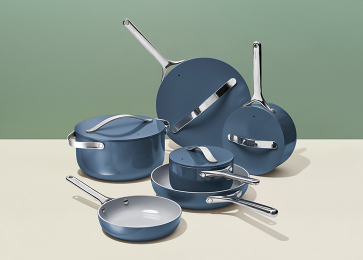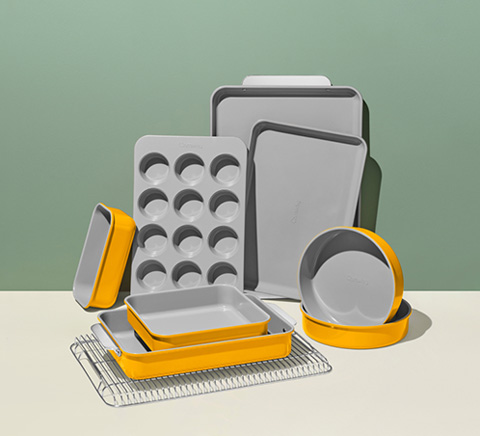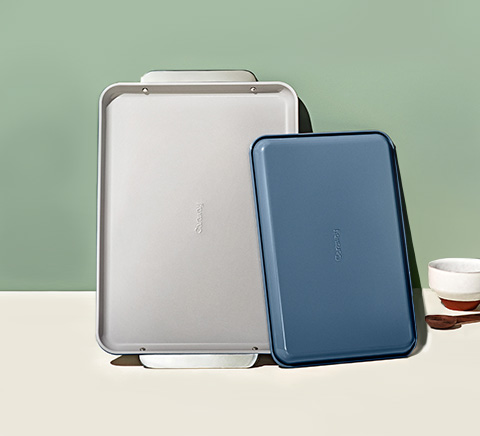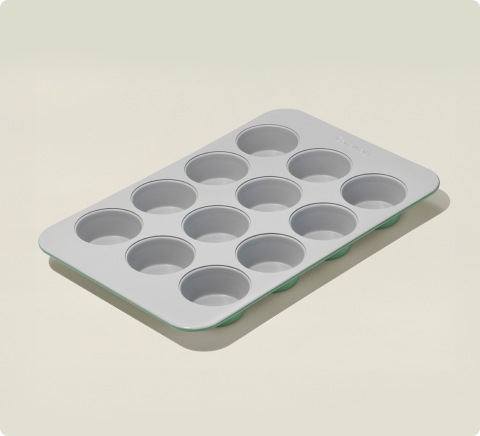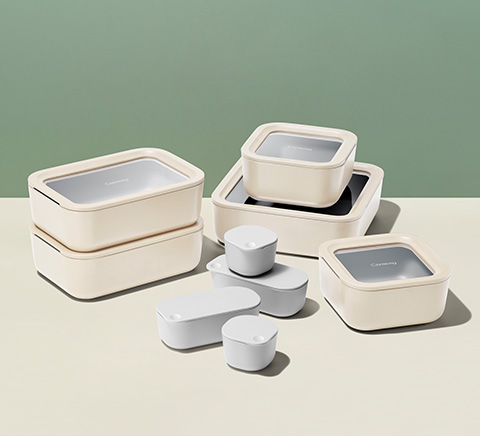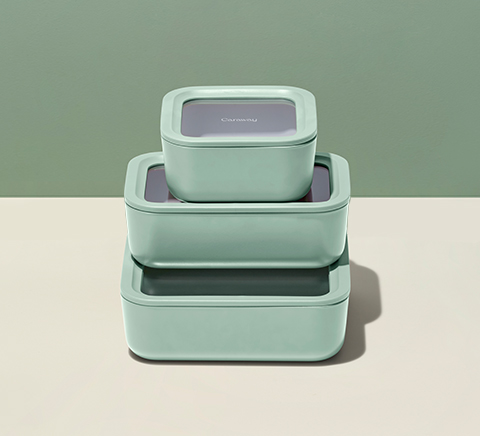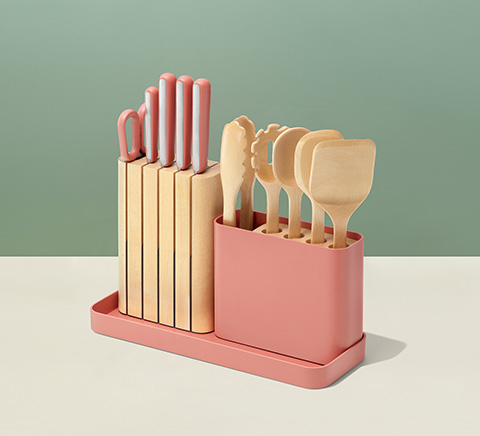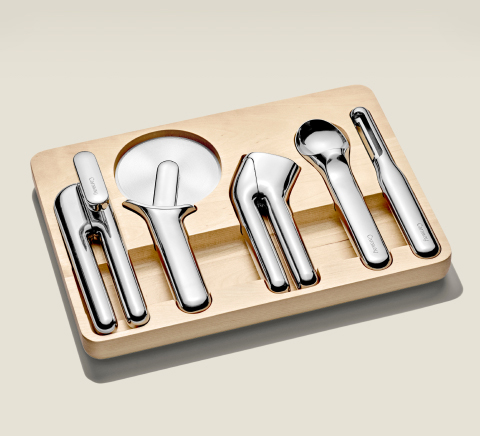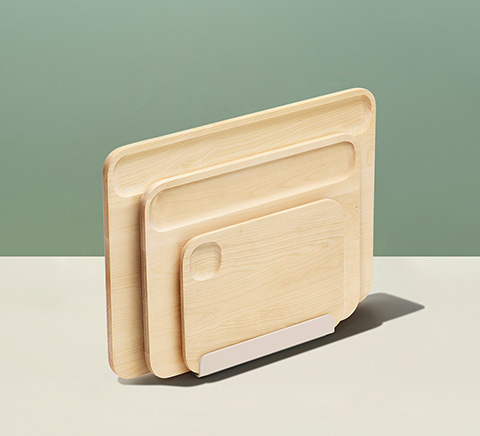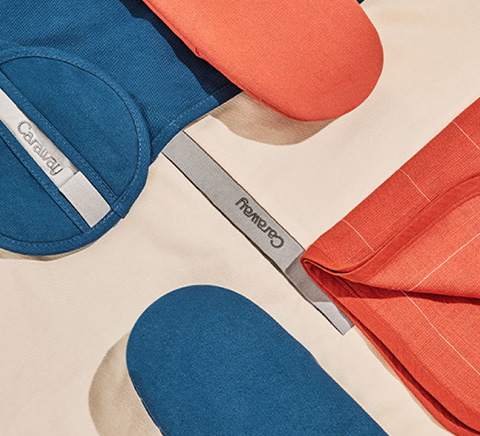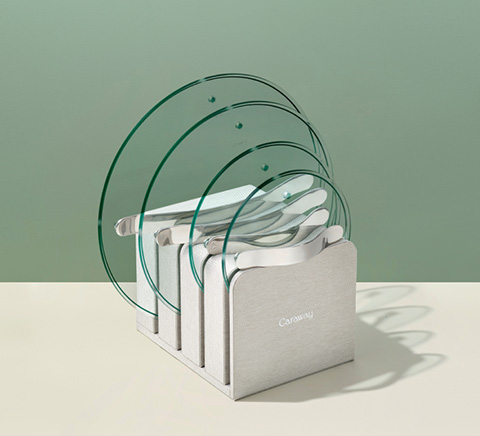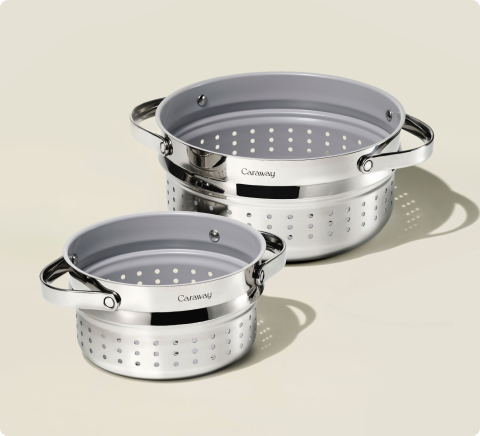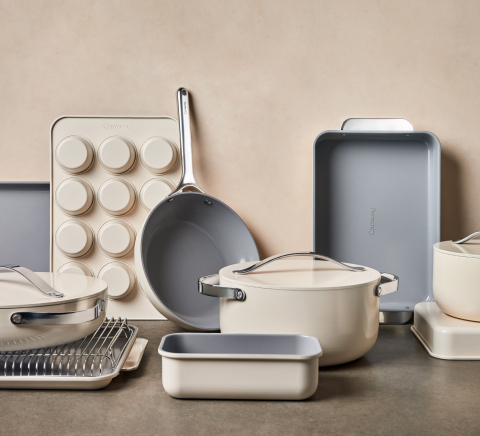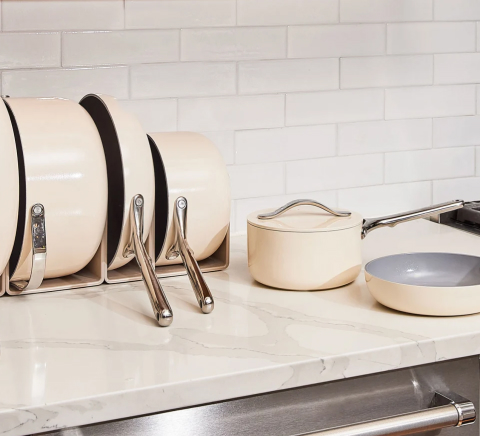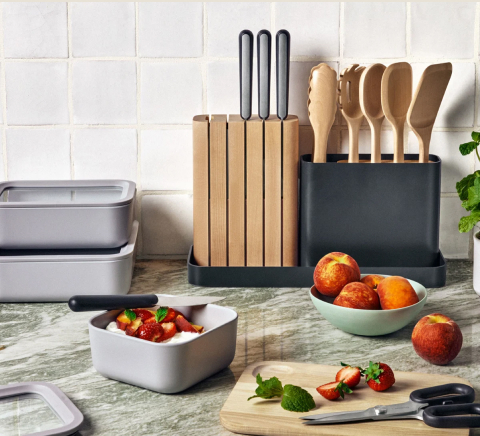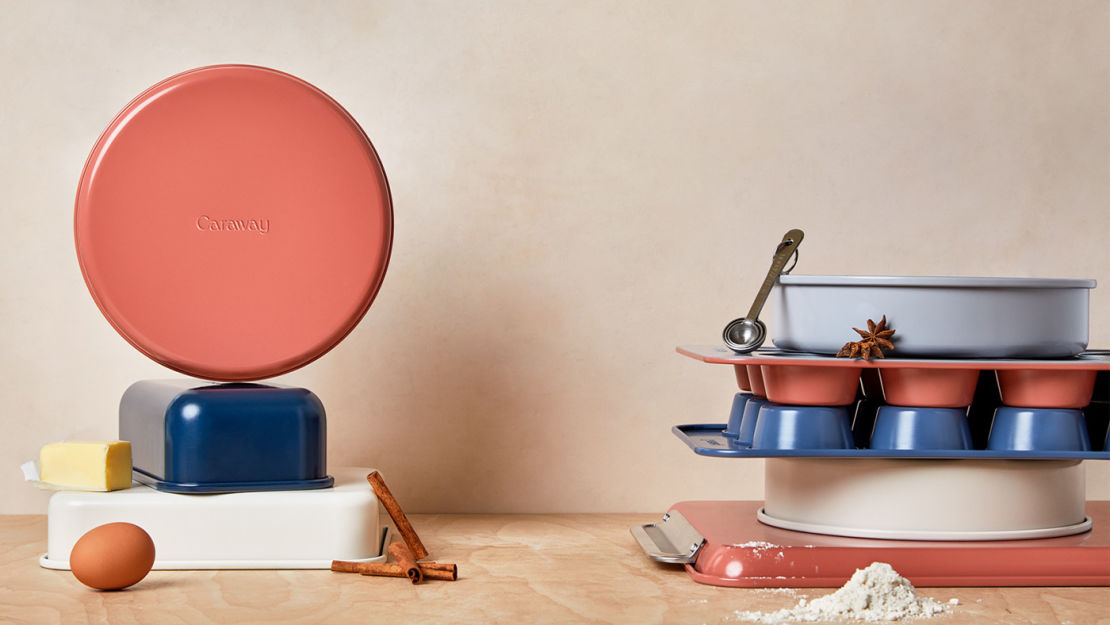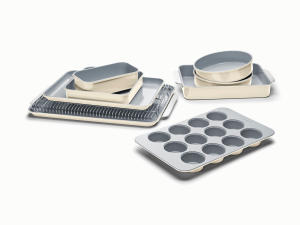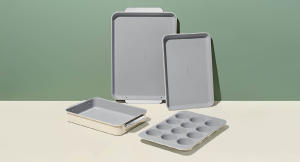Wondering what exactly a Loaf Pan is? This small but mighty pan is an asset to every kitchen, and there are several reasons why.
If you’ve ever browsed through baked goods recipes, then you might have noticed that many of them call for a Loaf Pan. Indeed, this pan is the perfect bakeware for making quick and easy baked goods, such as a loaf of sandwich bread.
We have everything you need to know about the Loaf Pan—along with five of its top uses—with this guide from Caraway.
What Is a Loaf Pan?
A Loaf Pan—also known as a bread pan—is a rectangular-shaped bakeware that’s traditionally used for baking bread. However, there are tons of other uses for Loaf Pan—which we’ll cover in more detail below.
A Loaf Pan is usually made from a conductive material and is often treated with a non-stick coating (such as ceramic). This makes it easy to bake bread (or the dozens of other things you can make in a Loaf Pan) while preventing any sticking. Although the most common size for a Loaf Pan is 9 x 5 inches (or one pound), you can find loaf pans in a variety of sizes.
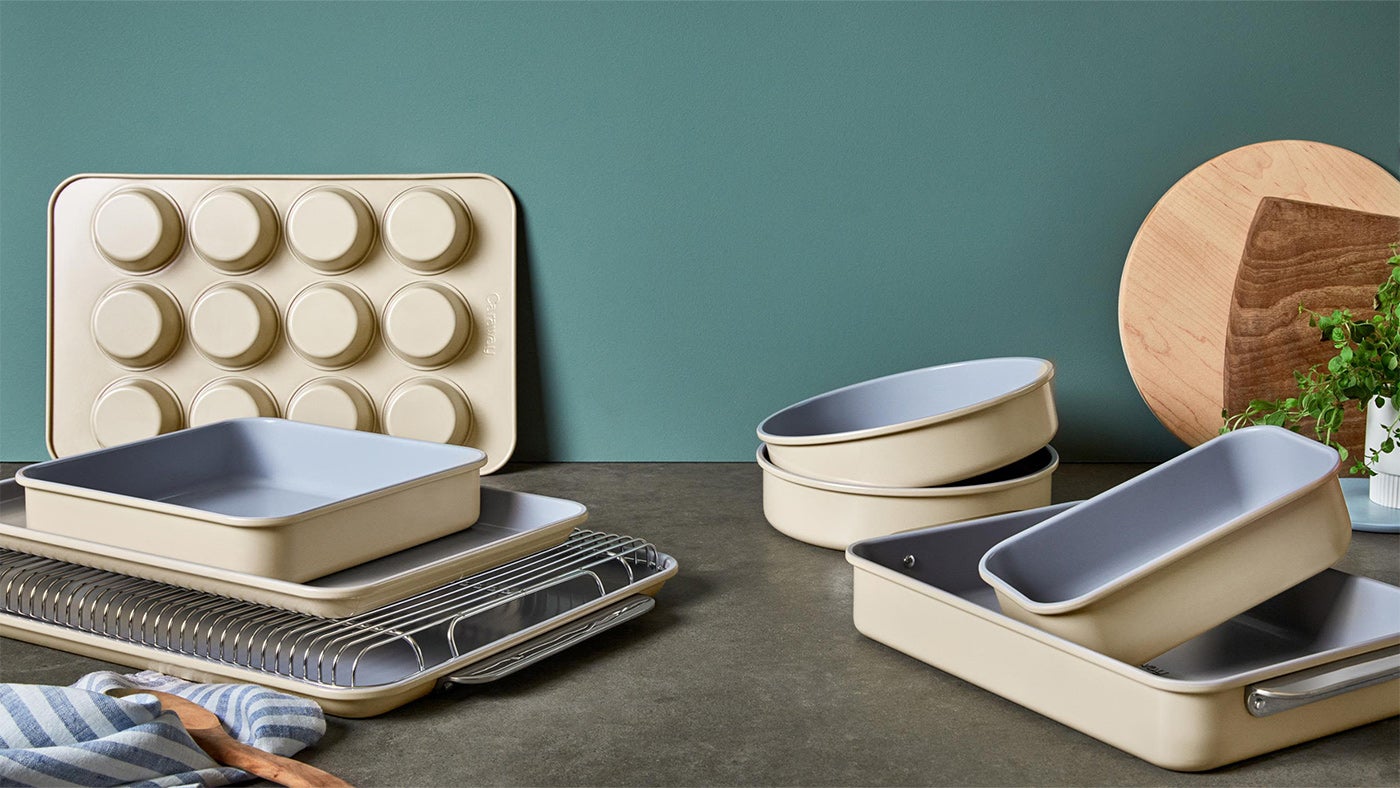
How To Choose a Loaf Pan
There are many types of Loaf Pans available on the market.
Here are some things to consider when choosing the best one for you:
Material
The material you use has a dramatic effect on how your recipes come out.
Here are some of the most popular options to consider:
-
Stainless Steel: Similar to aluminum, stainless steel is incredibly durable. True to its name, it won’t stain—which means no more annoying rusting or other pesky spots on your bakeware.
-
Glass: While glass doesn’t heat up as fast as aluminum and stainless steel, it’s still an excellent material for retaining heat. Another upside of using glass? You’ll be able to observe your Loaf Pan baking from all sides.
-
Stoneware: Stoneware has been used for centuries for making bread with a perfectly crispy crust. In addition, it has a rustic appearance that makes it perfect for doubling as a serving dish.
-
Silicone: Silicone is touted for its non-stick benefits. However, we’d prefer to avoid this material due to its high plastic content, which can leach into food. Instead, it’s better to go for a nonstick option that’s not toxic—such as ceramic.
-
**Ceramic: **Ceramic is a material that goes back at least 24,000 years. Ceramic is known for its undeniable strength and ability to withstand exceedingly high temperatures.
Ceramic cook and bakeware can often go right from the stovetop to the oven. Ceramic cookware is famous for its non-stick, eco-friendly, and non-toxic properties that can help support clean eating and healthy living.
Size
Typically, a standard Loaf Pan measures 9 x 5 inches—a size otherwise referred to as a standard one-pound Loaf Pan. However, a Loaf Pan can come in many other sizes, which is important to consider before you use it for cooking.
Size is critical when baking (especially those recipes that require scientific precision). Using the wrong type of bakeware can make your recipes come out… different from how you would expect them to.
For instance, using a Loaf Pan that’s only slightly too big can prevent your baked goods from rising properly. In the best-case scenario, using a Loaf Pan that’s too big will result in bread with a slightly odd shape. Conversely, a too-small Loaf Pan can cause your ingredients to overflow.
For this reason, it's important to invest in a Loaf Pan that your favorite recipes call for. But if you have trusted bakeware that you love using, then it’s certainly possible to make size conversions and substitutions without ruining your recipe.
Shape
Although all Loaf Pans are rectangular, their exact shape can vary slightly between different options. Some of these pans can be somewhat wide and shallow, while others are more narrow and deep.
In addition, some Loaf Pans may have designs that enhance their appearance and, in some cases, their functionality. For instance, some Loaf Pans may have sharp corners, while others may have corners that are more round. In addition, some Loaf Pans have embossed designs that create decorative patterns on the finished loaf.
While these shouldn’t change your recipes dramatically, it’s still something to consider. For the most versatile Loaf Pan, we’d prefer to go with a more simple design.
Nonstick Coating
A nonstick coating is especially important for your bakeware as it allows your baked goods to be easily released from the Loaf Pan. There are a few options available for non-stick bakeware.
We’re all familiar with polytetrafluoroethylene (PTFE)—better known by its brand name, Teflon. While this material does offer non-stick qualities, it has a tendency to quickly damage over time, which can lead to scraps of it ending up in your food.
In addition, this material can’t be used at high temperatures. For these reasons—amongst many others—we’d steer clear of Teflon.
Instead, we’d go for a non-toxic option such as ceramic. This is a perfectly durable material that won’t leach harmful chemicals into your food while still performing incredibly well in any challenge it’s put up to.
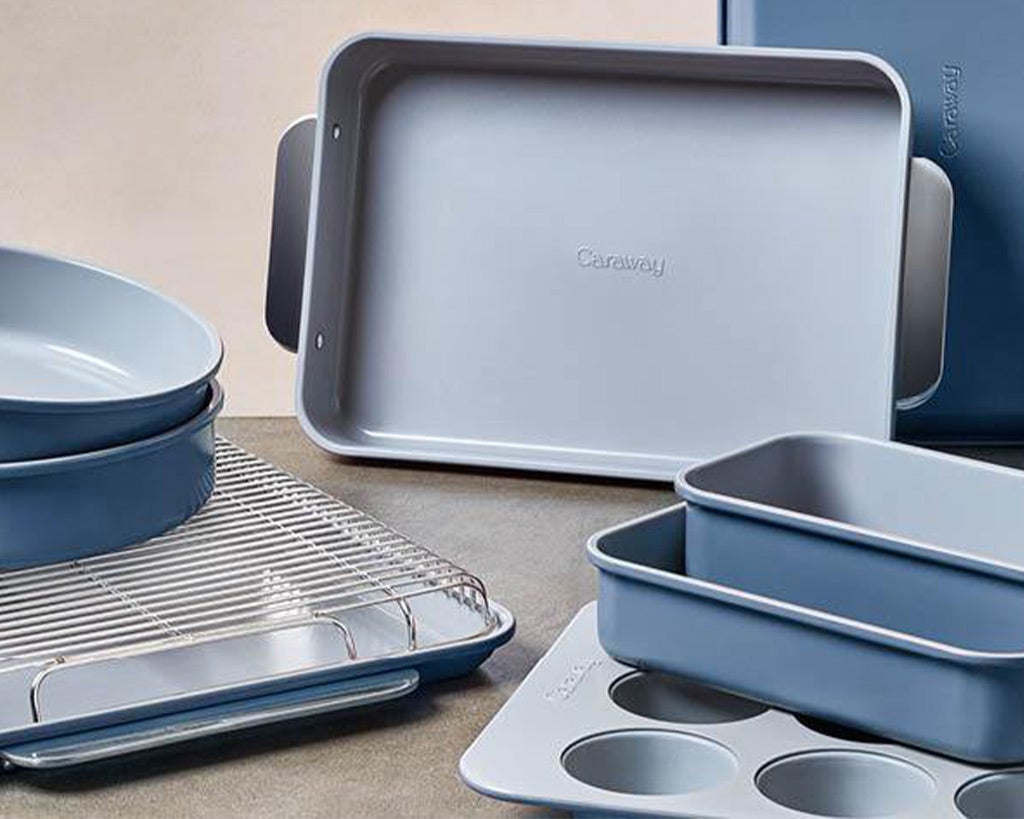
5 Ways To Use a Loaf Pan
There are many things you can do with a Loaf Pan, which makes it an incredibly versatile type of bakeware.
Here are five classic uses of a Loaf Pan:
1. Make Home-Made Bread
Stay true to the Loaf Pan’s primary use by baking a loaf of bread. While this may not be as quick and convenient as buying bread from a bakery, you’ll have full freedom with the ingredients that go into your bread.
As such, you can experiment with making a loaf that’s either low-carb, high-protein, or gluten-free—or all three.
2. Bake Pound Cake
A pound cake is the perfect baked good to make when you’re short on time. Simply mix all the ingredients together, pour the mixture into your Loaf Pan, and bake for some 20 minutes. As a plus, this is an incredibly versatile baked good, giving you full creative freedom with the ingredients.
3. Cook a Meatloaf
If you’re making a meatloaf, then it’s very likely that your recipe will call for a one-pound Loaf Pan. For those days you’re not making baked goods, a Loaf Pan is an incredibly handy kitchen tool that will get dinner on the table in no time.
4. Bake a Mini Casserole
If you’re making dinner for one or two people, then it might seem a bit much to use a whole casserole dish—unless, of course, you’re planning on leftovers. If that’s not the case, then a Loaf Pan is the perfect way to downsize any dinner dish that requires baking, such as a savory casserole.
5. Freeze Ice Cream
Making ice cream is a multi-step process. After you churn it using your ice cream maker, you have to freeze it for a few hours. Only then is it ready to be scooped up and eaten. To freeze it, a Loaf Pan is typically the ideal material that will quickly make your ice cream cold.
Quit Loafin’ Around…
… And get to baking!
There are dozens of recipes that a Loaf Pan can help you cook. For the best Loaf Pan—as well as other kitchen staples—discover The Caraway Home Bakeware Collection.
Baking is part science and part art. This creative and meticulous endeavor needs bakeware that is adaptable and ready for everything—it calls for the Loaf Pan.
Our Sources:
How to Swap Baking Pan Sizes Without Ruining Your Recipe
The Most Adaptable One-Bowl Cornmeal Poundcake - NYTimes Cooking | The New York Times
Perfluorooctanoic Acid (PFOA), Teflon, and Related Chemicals | American Cancer Society
